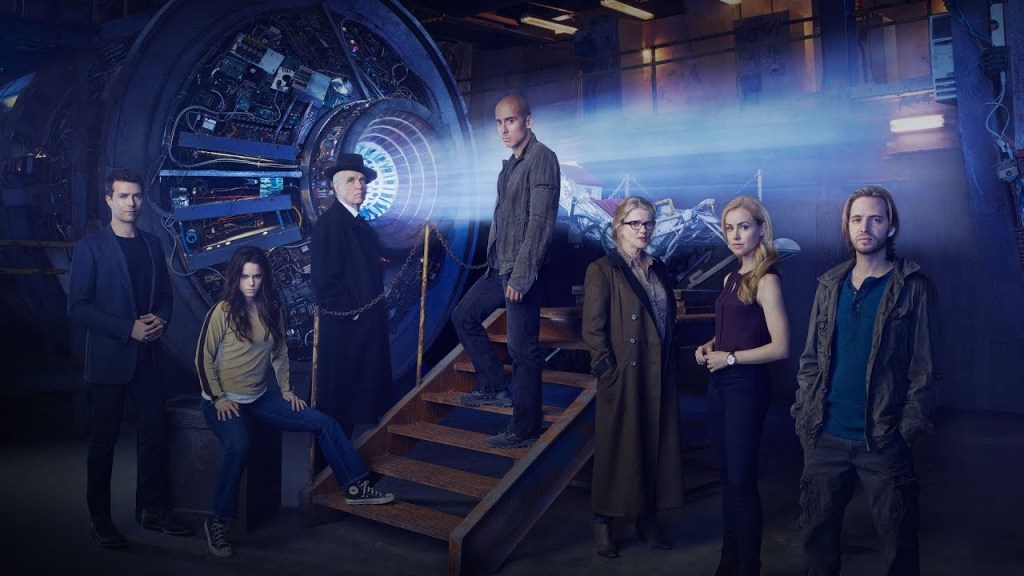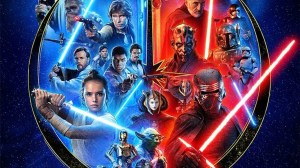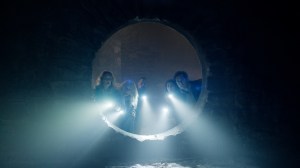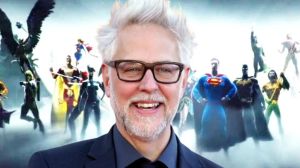When it was first announced that 12 Monkeys — Terry Gilliam’s 1995 cult classic starring Bruce Willis and Brad Pitt — was being reimagined as a television series, fans of the original met the news with a heavy dose of skepticism. After all, the movie was a unique blend of dystopian paranoia, time travel, and psychological drama. It was quirky, philosophical, and so specific in tone that the idea of stretching its tightly wound narrative into a multi-season arc felt risky at best, and misguided at worst. Yet somehow, against all odds, 12 Monkeys, the TV series, didn’t just work but went on to become one of the most ambitious, emotionally gripping, and narratively rewarding sci-fi shows of the modern era.
Videos by ComicBook.com
Premiering at the beginning of 2015 on Syfy and running for four seasons, 12 Monkeys began with a familiar premise. A deadly plague has wiped out most of humanity, and time traveler James Cole (Aaron Stanford) is sent back in time to stop it at its source.
12 Monkeys is a Tightly Wound Narrative About a Clock-Stopping Race Against Time

The echoes the basic beats of the movie, from Cole’s mission and complicated relationship with a brilliant virologist, Dr. Cassandra Railly (Amanda Schull), to his pursuit of a mysterious group known as the Army of the 12 Monkeys. But that’s where the similarities end. Rather than simply retelling the film’s story, the series uses it as a launching pad for something far more expansive. It quickly evolves into a vast, genre-bending epic that blends time travel, dystopian horror, metaphysical mystery, and even elements of romance and myth. The series deftly explores the complications of time travel without getting lost in them. Too often, shows that play with timelines and paradoxes wind up tripping over their own logic. 12 Monkeys, however, treats time as both a puzzle and a character in its own right. It leans into the chaos, building entire arcs around shifting timelines, alternate futures, and history that can only be rewritten at the steepest of prices. The story’s brain-bending twists go beyond delivering shock value. They’re deeply embedded in the characters’ evolving relationships and personal sacrifices.
Aaron Stanford brings a raw intensity to James Cole that’s completely distinct from Bruce Willis’s portrayal. His Cole starts off as a rough-edged scavenger from a broken future, but over time, he grows into a leader burdened by impossible choices. Amanda Schull’s Dr. Cassandra Railly undergoes one of the show’s most compelling arcs, transforming from a by-the-book scientist into a hardened survivor who learns that saving the world sometimes means abandoning the rules. The chemistry between Stanford and Schull is magnetic, and their slow-burn romance unfolds with genuine complexity. And then there’s Emily Hampshire as Jennifer Goines — a gender-swapped version of Brad Pitt’s manic Jeffrey Goines. Hampshire delivers a performance that is as unpredictable as it is unforgettable. Jennifer starts off as a brilliant but highly unstable patient who hears voices and talks to herself in rhyme. But as the show progresses, she turns into more of a prophet, a wildcard, a reluctant hero. Her arc is one of the most surprising and satisfying in the series, and Hampshire’s ability to shift from eccentric chaos to heartbreaking vulnerability is nothing short of genius.

The villains, too, are nothing short of iconic. The mysterious Witness, the enigmatic figure at the center of the Army of the 12 Monkeys, is more than just a faceless antagonist. As his identity and motivations are slowly revealed, the show dives deep into questions of free will, destiny, and the nature of time itself. The writing never takes the easy route. Characters who initially come off as evil are but walking tragedies. Allies and friends engage in betrayals, and the line between hero and villain is often blurred by circumstance.
Science fiction shows, especially those involving time travel, often fall apart in their final seasons. Either they get cancelled before resolving major plot points or fumble the ending with a convoluted wrap-up. 12 Monkeys avoids tumbling into both traps. The writers had a clear roadmap, and the series finale is a masterclass in how to bring an epic narrative full circle. It’s emotional, satisfying, and loaded with callbacks that reward long-time viewers without alienating casual ones. But perhaps the most important thing that 12 Monkeys achieves is never losing sight of the people in the story. Time travel, plagues, paradoxes, and fate might sound like abstract concepts, but in this show, they’re deeply personal. Every twist and turn, every jump through time, carries emotional weight. It’s a show that manages to be both smart and heartfelt, complex yet accessible. It dares to be hopeful in a genre that often leans into despair.
So if you’ve skipped this series thinking it’s just a reheated version of a ’90s cult film, it’s time to reconsider. 12 Monkeys is a reinvention, a bold, beautifully told, emotionally rich sci-fi saga that honors its source material while carving out its own legacy. It may have started in the shadow of a classic, but it didn’t stay there long. It splintered through time and became one of the greatest sci-fi stories television has ever told.









